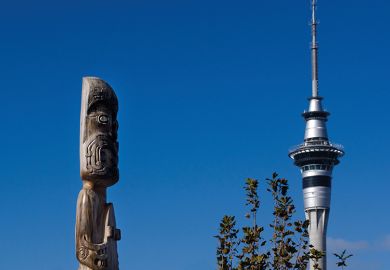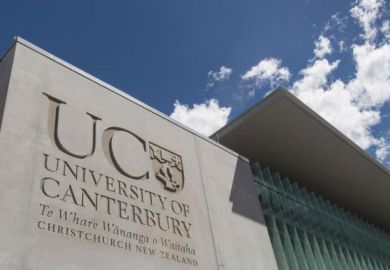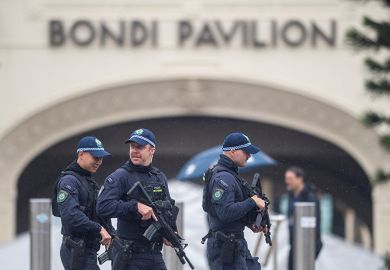Almost half of New Zealand academics do not feel at liberty to “argue against the consensus” with their colleagues, and barely two in five feel comfortable discussing hot-button issues such as colonialism, in a country where their right to do such things is enshrined in law.
A survey of Kiwi academics has found that most feel free to determine the subject matter of their courses, research their topics of choice and discuss politics, religion and sexual orientation at their institutions.
But just 50 per cent are comfortable discussing sex and gender, with 45 per cent comfortable discussing race. And on the fraught issues of colonialism and New Zealand’s Treaty of Waitangi, only 41 per cent profess comfort.
The uneasiness is most pronounced among academics who are male, older, of European or Asian heritage and consider themselves centrist or right wing. Somewhat counter-intuitively, willingness to discuss sensitive topics declines with seniority, with just 31 per cent of professors comfortable talking about colonialism or the Treaty of Waitangi.
The survey, the second of its kind, was conducted for the Free Speech Union (FSU) by polling company Curia Market Research. Curia principal David Farrar, a prominent blogger and longstanding former staffer with the centre-right National Party, acknowledged possible selection bias in the results.
“The answer to what could be flawed data is more data, not less, or pretending there’s no issue,” he said. “Even if you don’t think it’s entirely representative, surely it should still be a concern that at a minimum there’s hundreds of academics out there who think things are really dire.
“The body that should be surveying academics is probably the government – the Tertiary Education Commission [TEC] – and the university v-cs themselves, because this is a statutory right. We can’t get the cooperation of the universities, which would have greatly lifted the participation rate. We basically scraped the email addresses off their websites.”
This year’s survey attracted about 450 respondents, down from almost 1,300 last year. Mr Farrar blamed “bounced” emails, probably because universities had upgraded their IT security, and said the sample size limited the scope for fine-grained analysis.
But the broad results differed from the “normal bell curve” of surveys, which uncovered only small proportions of views at the extremes, with “90 per cent of people in the middle”.
“What we’ve picked up both years is…30 per cent of people saying, ‘We have no freedom at all,’ and 30 per cent saying, ‘We’ve got great academic freedom.’ That’s the total opposite of a bell curve. The problem is academic freedom’s only working for people whose opinions are in line with the groupthink of the university.”
The FSU report says that if the findings are correct, they highlight a “failure of the oversight of the legislative framework” for tertiary education – a failure with “no apparent consequences for those who are supposed to lead”.
“Where are the TEC, the minister of education, the vice-chancellors…and the Tertiary Education Union? The TEC and the minister…are intent on not only refusing to engage with the problem but refusing to assess whether there is a problem at all.”
Times Higher Education sought responses from the TEC, education minister Jan Tinetti and the union, with only the first responding. Chief executive Tim Fowler said the TEC’s role was outlined in the Education and Training Act, the Tertiary Education Strategy and other documents.
“We have not specifically been tasked with monitoring free speech. The act clearly states how universities and wānanga [Māori-focused colleges] must exercise their institutional autonomy and academic freedom. It is for the institutions to monitor and manage these issues.”
Mr Farrar said institutional autonomy limited the TEC’s scope to take action on academic freedom, “but there’s certainly nothing stopping them from trying to engage”.
“The minister saying, ‘I’m concerned about academic freedom’ [and] asking the TEC to do research in this area – that by itself would have a galvanising effect.”
Register to continue
Why register?
- Registration is free and only takes a moment
- Once registered, you can read 3 articles a month
- Sign up for our newsletter
Subscribe
Or subscribe for unlimited access to:
- Unlimited access to news, views, insights & reviews
- Digital editions
- Digital access to THE’s university and college rankings analysis
Already registered or a current subscriber?








